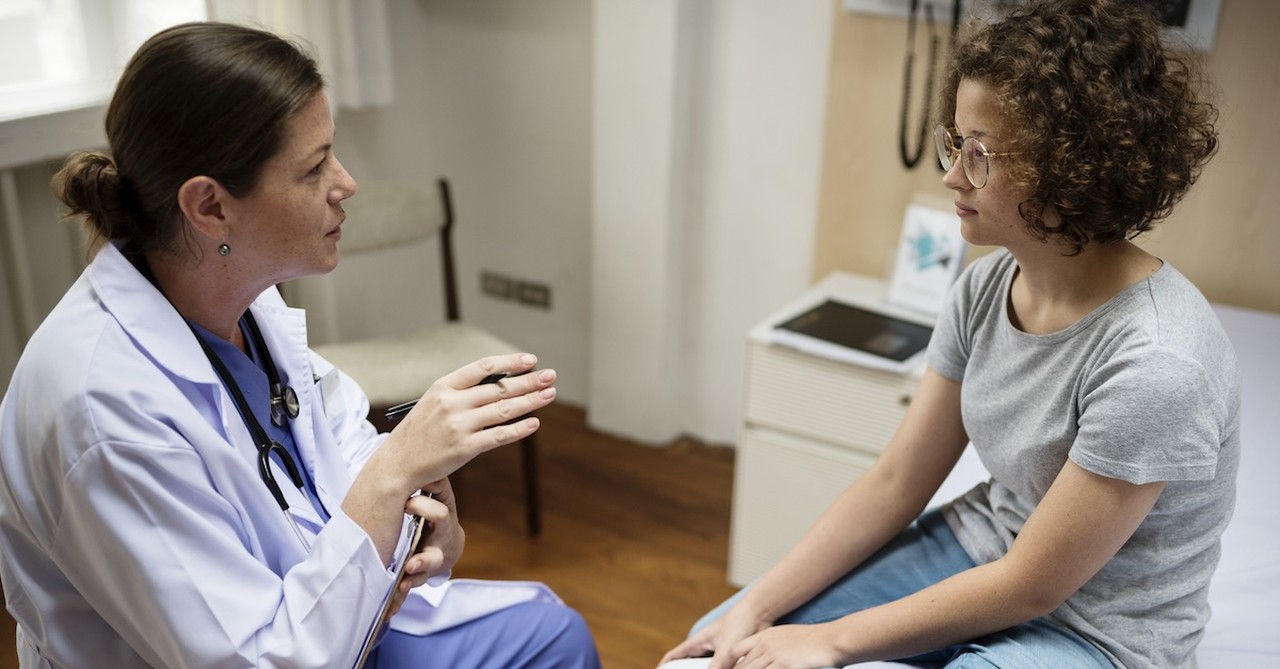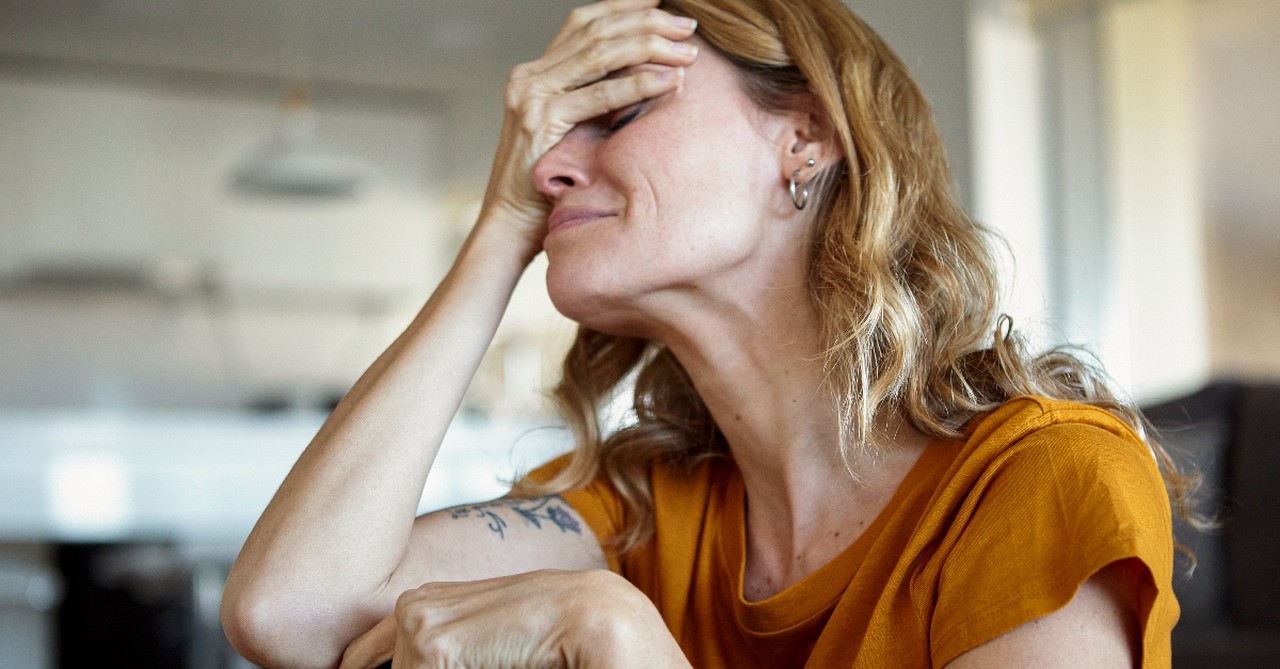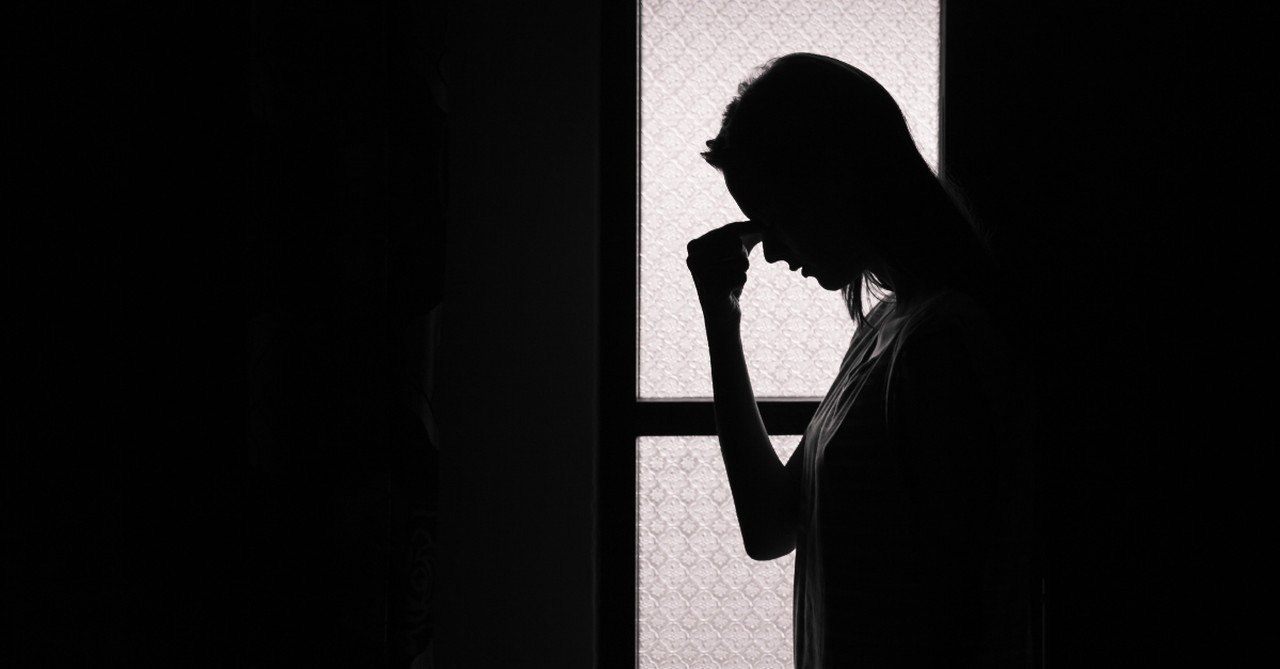
When I first became a woman, periods were scary. I find that most people are squeamish when it comes to blood, and I'm no different. But the scariest part was being too afraid to tell anyone. I was in denial that my body was maturing, and so I kept it to myself. Pain included.
During those first few years, the pain wasn't awful. I could pop an ibuprofen or Pamprin and go on my merry way. As I entered my early and mid-twenties, however, I suspected something was wrong. The sharp stabs and yanking were increasing. Regular doses of pain medication no longer worked, and I grew fearful yet again. This time, not because of the blood, but the unceasing agony.
For five years, I suffered in silence. Doctor after doctor told me I was a normal and healthy functioning woman. They wouldn't examine me because I wasn't sexually active. But they were confident I was fine.
"Every woman has cramps," they'd note, adding me to the list of all the other patients they'd passed along.
"Here's 800mg ibuprofen," they offered, attempting to numb the pinpricks with what felt like a useless bandaid.
"Eat more fiber and work out to ease symptoms," they'd retort as if I wasn't already doing that.
And so, I'd embrace another smile, say "Fine," and go on my way.
Until the day I passed out. Until the day I crumpled in COSI. Until the day my now-husband saw me crawl on the floor to the bathroom.
On that day, I decided my health and body deserved answers. It would be a long journey ahead, definitely not easy, but worth it. I desire answers and support for every one of you suffering today. And that begins by seeking answers and being informed.
If I could tell people three things about Endometriosis, I would tell them this:
1. It Isn't Just Period Pain

1. It Isn't Just Period Pain
SLIDE 1 OF 3
Did you know that Endometriosis affects roughly 10% (190 million) of reproductive-age women globally (WHO, 2023)?
As a chronic and life-altering disease, many women experience pain and symptoms far beyond their typical cycle. This includes but isn't limited to pelvic pain, pain during periods, pain during ovulation, pain during sexual activity, painful bowel movements and/or urination, abdominal bloating and gas, nausea, fatigue, back pain, cramping, and headaches. It's also often accompanied by insomnia, heavy bleeding, and the passing of blood clots, as well as mental health issues such as depression, anxiety, eating disorders, PMDD, and PCOS. Infertility is also a common aftermath.
My periods are really bad the first three days. And if I don't catch the pain in time to take sufficient medication, I'm often unable to move or sit up at all. This can last for hours or days depending on the cramps. This last month, sleep eluded me for 48 hours straight. I crawled on the floor of my classroom at work and cried in the bathroom. To say I was exhausted afterward is an understatement.
I am just one of many women suffering from what outsiders call "just period pain." But I'm here to tell you it's so much more than that. It's crawling on the floor to the bathroom because you can't stand up straight. It's suffering from back pain, constant stomach issues, and headaches daily. It's having unbearable periods once a month but symptoms for a lifetime. Endometriosis is debilitating, and it's my prayer people will realize that.
Photo Credit: ©iStock/Getty Images Plus/Mindful Media
2. It is a Real Disease

2. It is a Real Disease
SLIDE 2 OF 3
The second thing I want outsiders to know about Endometriosis is that it's a real diagnosis and disease. John Hopkins Medicine reports that Endometriosis is derived from the word “endometrium” (AKA, the tissue that lines the uterus). When a woman has a period, her uterus sheds this lining. Individuals with Endometriosis, however, have tissue in places other than the uterus. This growing tissue thus causes pain and complications. It's a myth that getting pregnant or going on birth control will cure Endometriosis. It merely masks the pain for some time while ignoring the root cause.
While there are four stages of Endometriosis, these stages do not define the severity of the disease but rather the surface area they make up. For example, a woman with stage 4 could have little pain, but a woman with stage 1 or 2 could be in agony. I was diagnosed with Stage 2 this summer based on the surface area my Endometriosis covers. Currently, I have tissue growing on the right and left sides of my abdomen, my lower back, my pelvis, and ovaries to name a few places.
Endometriosis affects 2-10% of American women between the ages of 25 and 40 (John Hopkins Medicine), but that's merely the reported statistics. Most women go an entire lifetime without a diagnosis because the process is simply too frustrating. Yale Medicine reports that on average, this suffering lasts 10 years before women receive a proper diagnosis.
Photo Credit: ©Getty Images/kieferpix
3. Currently, There Is No Cure
3. Currently, There Is No Cure
SLIDE 3 OF 3
The final thing I want people to know about Endometriosis is that there's currently no cure. While both diagnostic and procedural laparoscopic surgeries are available, that doesn't immediately eradicate the pain or problem. Ablation surgeries burn the tip of Endometriosis off whereas excision removes it from the root up. The likelihood that the tissue can grow back after removal is around 20-30% within the first five years.
Even after the most successful of surgeries, patients will still face long roads ahead of them involving physical therapy and rehabilitation, strengthening, and recovery. Pain is still high, and the tissue very well may come back full-blown. My counselor's wife, for example, had Stage 4 removed by excision a few years ago, and while the symptoms and pain have been slightly reduced, her quality of life is still significantly reduced. She needs a second surgery.
I'm not sure what pain you might be experiencing. While I primarily write about mental health, I want to make sure I validate physical pain as well. I'm new to Endometriosis and still learning. It's going to be a process for my husband and me to work through, as it already has been. But together, with other warriors like yourself, we can press forward knowing we're never alone.
Agape, Amber
Photo Credit: ©

Originally published January 17, 2025.







